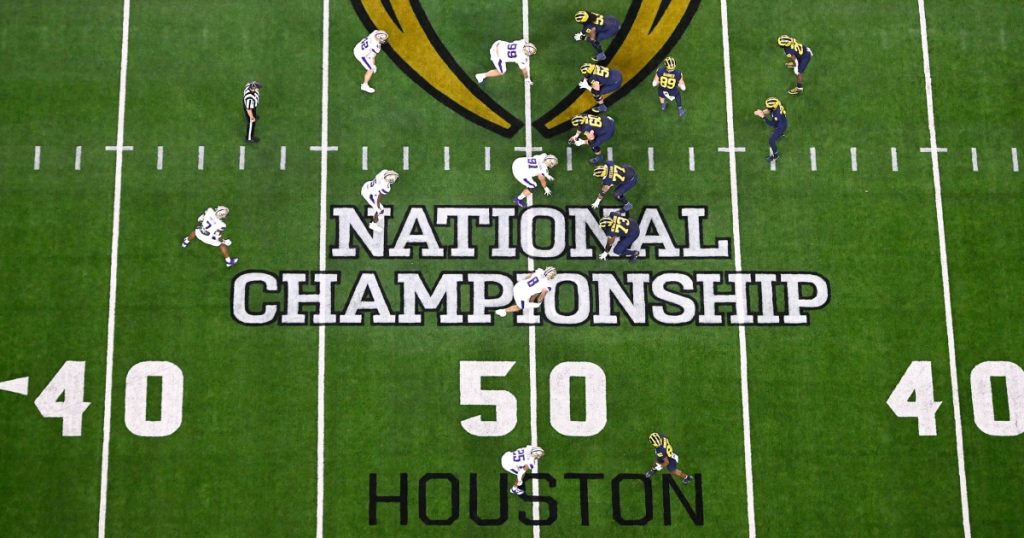A major change could be coming for college athletes as a tentative agreement has been announced by the NCAA and the country’s five biggest conferences to settle a series of anti-trust lawsuits. This agreement could potentially direct millions of dollars directly to athletes as soon as fall 2025, with nearly $2.8 billion set to be paid out over the next decade to 14,000 former and current student-athletes. The settlement is seen as an important step in reforming college sports to provide benefits to student-athletes and bring clarity to college athletics across all divisions for years to come.
The case, brought by a former and current college athlete, challenges the NCAA and five wealthy conferences for improperly barring athletes from earning endorsement money. The plaintiffs argue that athletes should be entitled to a piece of the billions in revenue generated by the NCAA and conferences from media rights agreements. This settlement is viewed as a landmark change that will bring college sports into the 21st century, offering athletes a fair share of the revenue they help generate for their schools.
The new compensation model may allow schools to set aside funds to share with athletes, with the possibility for up to $21 million per year being available per school. Athletes in all sports would be eligible for payments, and scholarships could be replaced by roster restrictions. The settlement is seen as a significant step towards compensating athletes for their talents and contributions to the multibillion-dollar business of college sports.
The agreement signals a shift away from the NCAA’s traditional amateurism model and towards a future where college athletes may receive both endorsement money and direct payments from their schools. The end of the NCAA’s restrictions on endorsement deals in recent years has paved the way for this change, offering athletes new opportunities for compensation. While details of the settlement have yet to be fully disclosed, the NCAA and conferences are taking steps to navigate the complexities of compensating athletes fairly.
While the settlement represents progress in the reform of college sports, there are still many issues to address, including the potential impact on Title IX gender equity laws and the involvement of booster-run collectives in athlete compensation. Additional lawsuits challenging athlete compensation rules are pending, highlighting the ongoing legal battles the NCAA and conferences face. Despite the progress made, federal legislation and antitrust exemptions may still be needed to solidify the terms of the settlement and protect the NCAA from future litigation and state laws that could undermine its authority.
The settlement represents a significant milestone in the evolution of college sports and reflects a broader trend towards providing athletes with more opportunities for compensation and rights. College sports leaders and lawmakers will need to work together to ensure that the terms of the agreement are implemented effectively, while continuing to address remaining challenges facing the NCAA and its member schools. As the legal process unfolds, there will be ongoing discussions and decisions to be made to shape the future of college athletics and the opportunities available to student-athletes.


